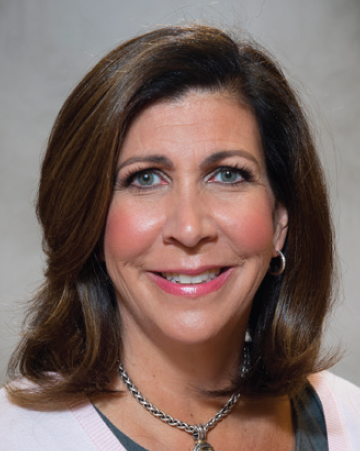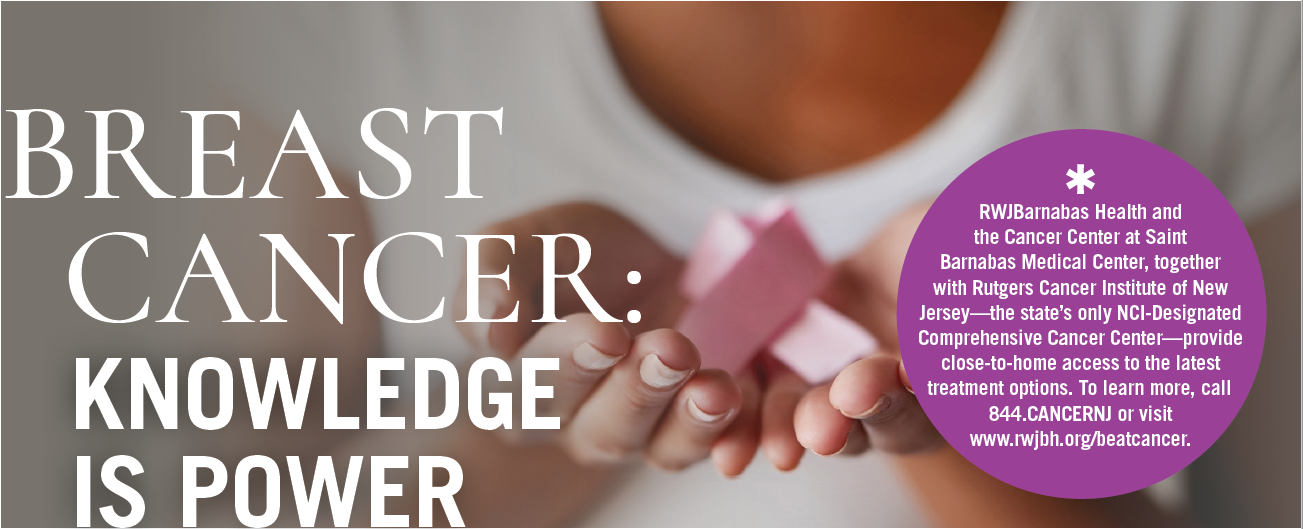Women at high risk can take a proactive approach.
“As a breast cancer surgeon, I got very frustrated by seeing women who had advanced breast cancer and knowing that, had I met them five or 10 years earlier, I could have told them they were at high risk,” says M. Michele Blackwood, MD, Northern Regional Director of Breast Cancer Surgical and Clinical Services for RWJBarnabas Health, Chief, Section of Breast Surgery, Rutgers Cancer Institute of New Jersey, and a member of RWJBarnabas Health Medical Group.

“If you know your risk for breast cancer, you know so much,” she says. “Very often, we can literally prevent breast cancer.”
Three years ago, Dr. Blackwood and her team at Saint Barnabas Medical Center developed the Breast Cancer Risk Reduction Program, which provides regular surveillance for women at high risk.
“After the initial risk assessment, we see patients at least once a year and order their imaging, which can include a breast MRI, a mammogram, an ultrasound or a biopsy if needed,” Dr. Blackwood explains. “We also want you to see your gynecologist and breast surgeon, alternating between them every six months, for a breast exam. The result of all this is that, if you do develop breast cancer, we will find it at an earlier stage when there’s a much greater chance of a cure.”
Women whose risk assessment is high may also opt to take small doses of tamoxifen, a hormonal therapy, to prevent breast cancer, or may even have preventive surgery, such as a nipple-sparing mastectomy that replaces breast tissue with implants.
Assessing Risk
“Twenty years ago, people weren’t comfortable talking about cancer risk,” says Dr. Blackwood. “Now, they’re accustomed to getting health information, and they know they can influence their survival by doing so.”
Although many know about genetic testing for the breast cancer genes BRCA1 and BRCA2, few people have those genes. “Women also need to be aware of other risk factors, such as having a first-degree relative, like a mother or sister, with breast cancer,” says Dr. Blackwood. “We know that having a child late in life can be a risk factor, as can having a biopsy that shows atypical—though not cancerous—cells.” Lifestyle factors, such as lack of exercise, being overweight, daily alcohol use and smoking also play a role.
“None of these factors mean you will definitely get breast cancer, but a program like ours helps you manage your risk,” she says.
Dr. Blackwood advises women to use an online breast cancer risk assessment tool that evaluates a woman’s personal information, such as age of first live birth of a child and number of previous breast biopsies. She recommends the Gail Model or the Tyrer-Cuzick Tool.
“If your lifetime risk is 20 percent or higher,” says Dr. Blackwood, “you fall into the high-risk category and should seek an appointment with your gynecologist or come to our program.”
RWJBarnabas Health and the Cancer Center at Saint Barnabas Medical Center, together with Rutgers Cancer Institute of New Jersey—the state’s only NCI-Designated Comprehensive Cancer Center—provide close-to-home access to the latest treatment options. To learn more, call 844.CANCERNJ or visit rwjbh.org/beatcancer.
To learn more about the Breast Cancer Risk Reduction Program at Saint Barnabas Medical Center, call 973.322.7020.
